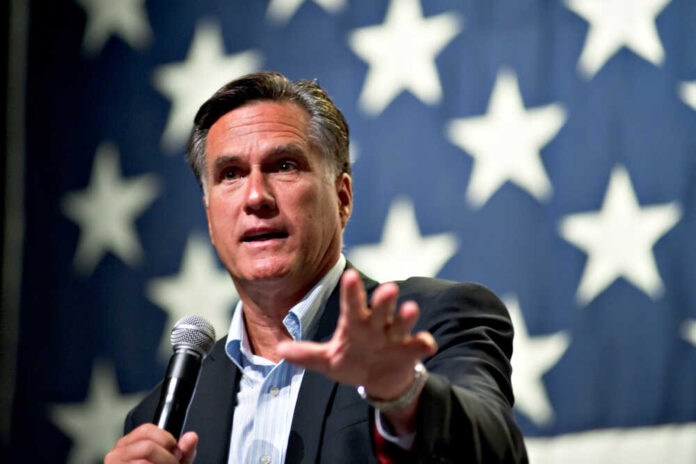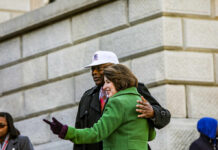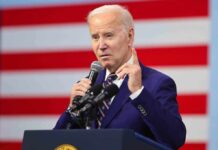
In the 2012 election year, Mitt Romney’s campaign emphasized the notion of not relying on the far right and frequently distanced itself from them while competing against Barack Obama.
The GOP’s weak “get out the vote” efforts, coupled with Mitt Romney’s distancing from the far right, resulted in Obama’s re-election despite his vulnerability as an incumbent. Romney subsequently retreated from the political scene for years, resurfacing in an attempt to portray himself as an “elder statesman” while still holding onto his “I don’t need conservatives” stance.
In a recent message through the Wall Street Journal’s opinion section, Romney addresses donors on how they should behave during the 2024 Republican primary.
The article reads, “Despite Donald Trump’s apparent inevitability, a baker’s dozen Republicans are hoping to become the party’s 2024 nominee for president. That is possible for any of them if the field narrows to a two-person race before Mr. Trump has the nomination sewn up. For that to happen, Republican megadonors and influencers—large and small—are going to have to do something they didn’t do in 2016: get candidates they support to agree to withdraw if and when their paths to the nomination are effectively closed. That decision day should be no later than, say, Feb. 26, the Monday following the contests in Iowa, New Hampshire, Nevada and South Carolina.”
Romney proceeds to share a story about how his father once stood in unity with Republican rivals, albeit unsuccessfully, to oppose Richard Nixon. However, he points out that such unity is no longer feasible due to the excessive amount of money being exchanged between candidates and super PACs, making it challenging to take a similar approach today.
To effectively encourage candidates to withdraw today, the crucial step is to rein in the consultants.
Candidates were often influenced by consultants seeking lucrative paychecks rather than genuine victories.
Limiting the candidates’ access to funds would aid in reducing their numbers. However, these candidates might have a better chance against Trump if consultants were less obsessed with their commissions and more committed to winning elections.
Didn’t Mitt Romney learn anything from losing to Obama in 2012 and getting shut out by @realDonaldTrump in 2016? Perhaps he did, and sold his political soul out to #NeverTrumpers. This will never work for Mittens. @JennPellegrino #NewsMax pic.twitter.com/QfZF9IUHa7
— Joe Gooding 💯🇺🇸 (@joegooding) July 26, 2023
The Republican Party possesses sufficient funds from its donor class to compete with Trump, and it also boasts plenty of viable candidates. Yet, the hindrance lies in the influence of poor consultants. Rectifying this issue would allow those who wish to move on from Trump to do so successfully.



























